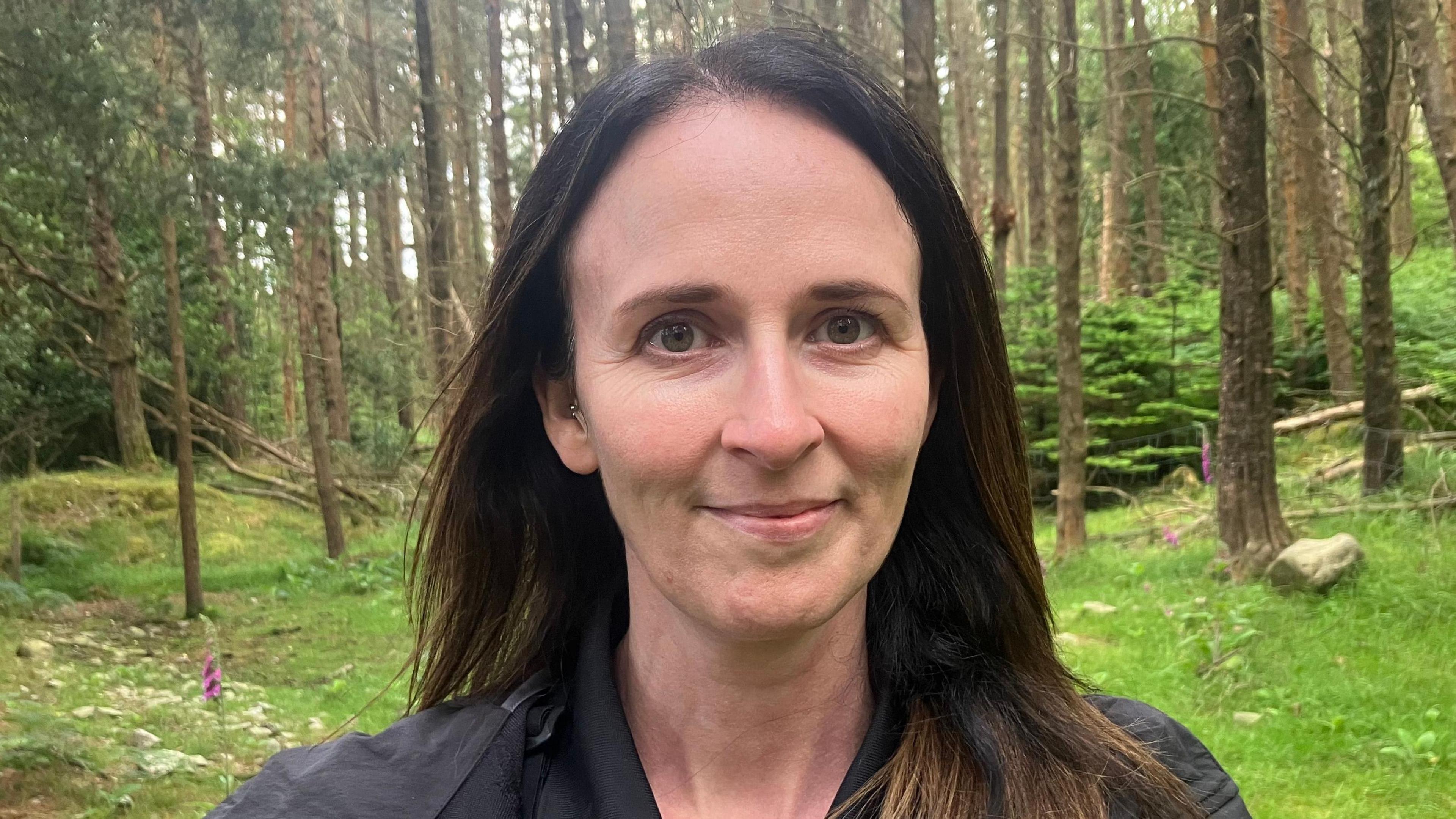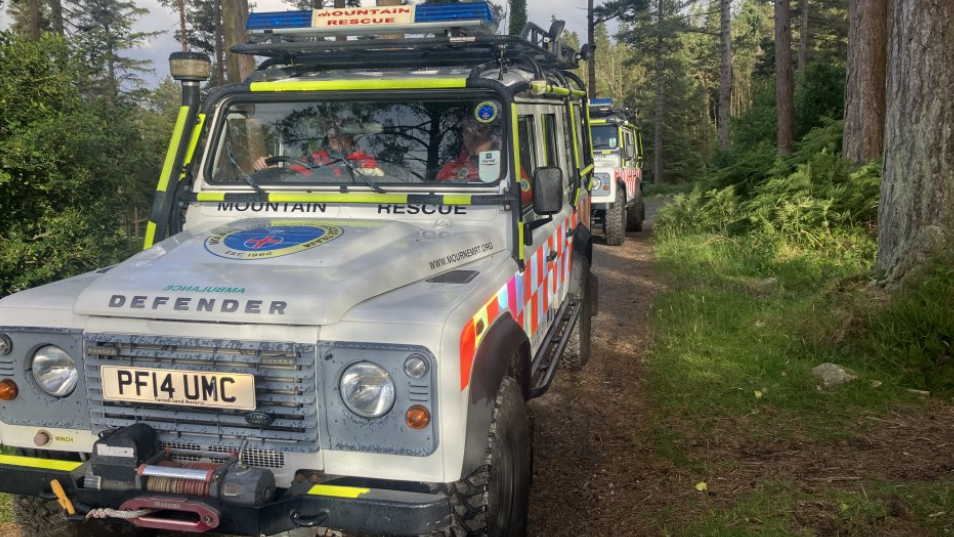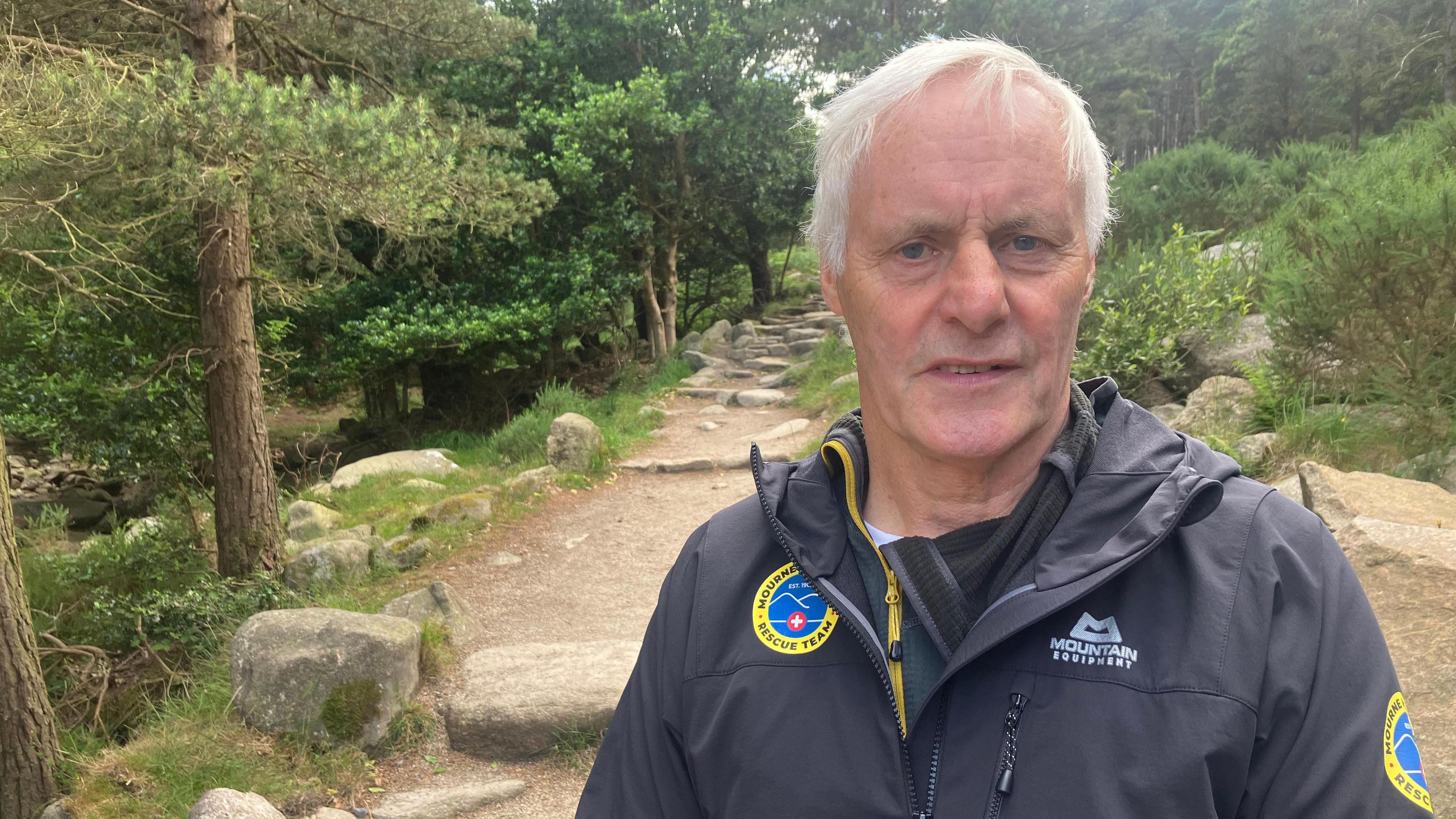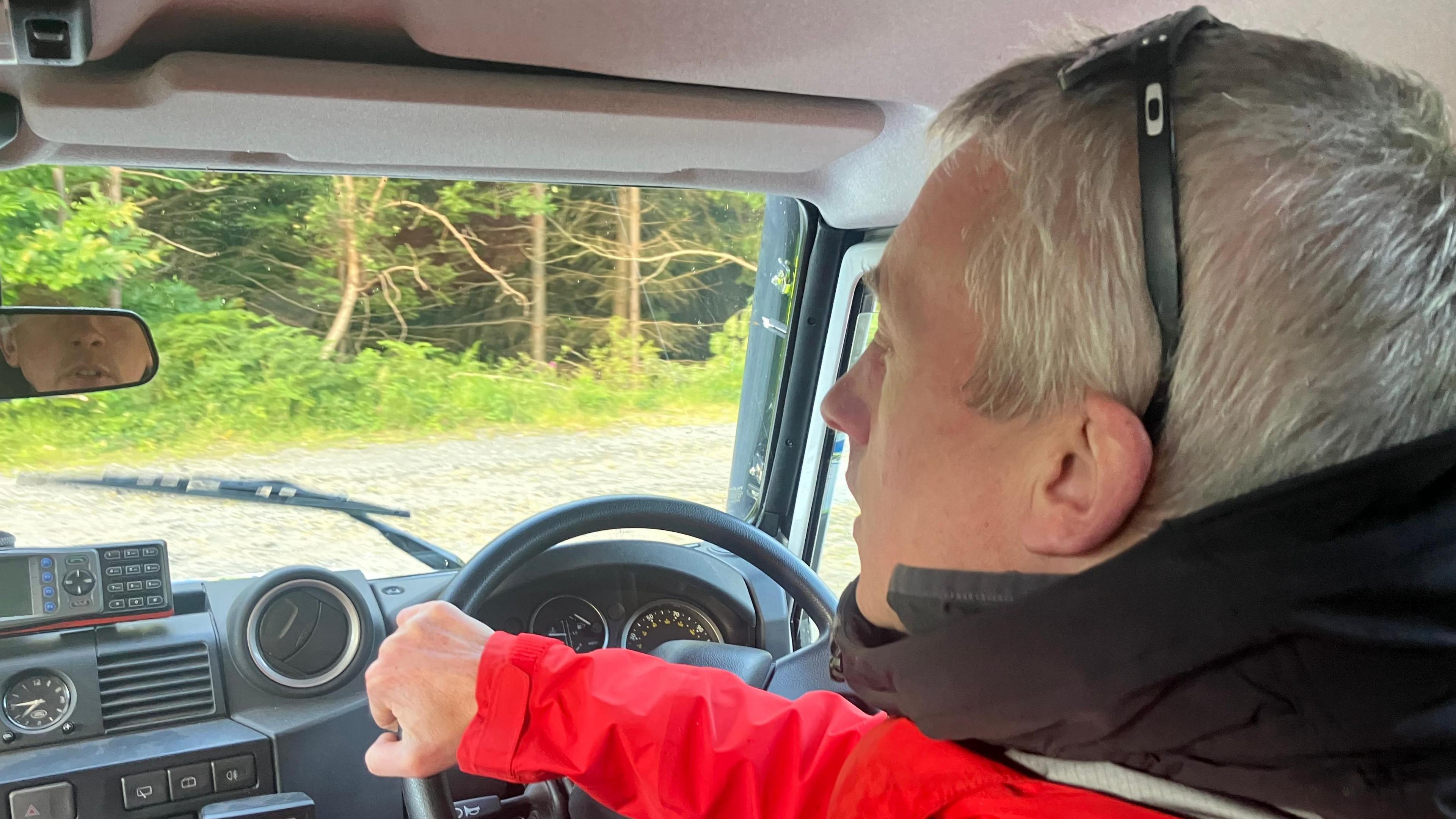Mourne rescuers describe 'extreme volunteer' emotions

Elaine Pollock trained for two years to become a full member of the Mourne Mountain Rescue Team (MMRT)
- Published
A newly-qualified volunteer for the Mourne Mountain Rescue Team has described the "gratitude" she feels by helping people in trouble on the mountains.
Some groups say they have struggled to attract and recruit new volunteers in recent years.
Elaine Pollock decided to undergo training after her employment circumstances changed and she was able to dedicate more time to volunteering.
Speaking to BBC News NI, she said: "A few years ago, I had an epiphany. I really enjoyed being out in the mountains, and I was doing quite a lot of miles across the mountains.
"Because I lived so close to the mountains, I was always in them. That built up my own confidence to do the distance and navigation."
'Number of emotions'
Ms Pollock and six other volunteers trained for two years before completing an assessment to become full members of the Mourne Mountain Rescue Team (MMRT).
Describing the experience of being called out to help casualties, she said: "You think, oh my goodness, someone could be really unwell up there or lost. You don't know what it is until you get to the base.
"Then you find out where it is, and it could be quite a distance before you get to the casualty.
"So there are quite a number of emotions in that, but I think the thought that you are going to help somebody that really needs your help gets you through all of that.”

Martin McMullan describes being a member of the MMRT as 'extreme volunteering'.
Since being founded in 1962, the MMRT has been involved in thousands of rescues, ranging from injured and lost walkers to life-and-death scenarios.
At a time when groups have been struggling to attract volunteers, the MMRT has managed to sustain its membership, with one member recently celebrating 40 years of service.

Dave Goddard has been with the MMRT for 40 years
Dave Goddard, who is originally from Yorkshire, told BBC News NI he got 'suckered in' to becoming a long-term member of the MMRT after meeting trainee volunteers while out hiking.
He explained: "There are times when you are up in the mountains in the middle of the night in the cold and the wet and the sleet and the snow and you think, what am I doing here?
"But you come off the mountain, get nice and warm and think, that was an experience."
'24 hours a day, 365 days a year'
“A lot of people think we are a statutory agency, we’re not, we are entirely voluntary,” says MMRT member Martin McMullan.
“When we say extreme volunteering, this is extreme volunteering.
“Those 30 members are what runs this service in its entirety – including being on call 24 hours a day, 365 days a year.
“There was one week recently where we had six calls all of which were quite severe.
"If we don’t do it, there is no other service there to deal with this, so it’s not something you can dip in and out of.”

Martin McMullan says the MMRT have not struggled to recruit volunteers.
MMRT run a recruitment process once a year.
After an application process, there is a selection day and a three-month induction process then begins.
Prospective volunteers are then put on a call-out list where they continue to train for a further year - a process that requires sacrifice and dedication.
To date, the group has not struggled to attract volunteers, but societally this is no longer the norm.
'A few hours can make a difference'
According to Denise Hayward, from Volunteer Now, many groups have been struggling to attract volunteers since routines were broken by lockdowns.
“New people are coming forward which is encouraging but it has been difficult to replace the skills and experience lost,” she said.
“These community, youth, sport and church groups are the lifeblood of our community life and if they were not there, we would be poorer for it.
"We all need to think, what can we do to help a local group or organisation? A few hours a month can make a big difference.”